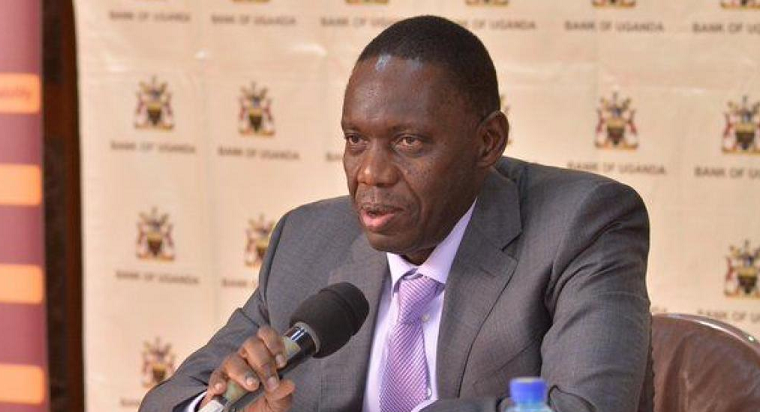BoU Deputy Governor, Michael Atingi-Ego
Bank of Uganda’s delay in starting the purchase of Gold on the local market is because it is still building a process that will efficiently block imported products out of the project, officials say.
In July, the Bank of Uganda officially announced that it would start purchasing Gold locally, to not only boost the mining communities’ incomes but also support the rebuilding of the foreign reserves which are on the decline.
Uganda’s foreign exchange reserves shrank 4.3 percent in the three months to the end of July 2024 to 3.3 billion dollars, equivalent to about three months of imports, down from 3.5 billion at the end of April, according to the Bank records.
This prompted it to seek other means of improving the reserve position, hence the gold-purchase position.
According to Dr Adam Mugume, the Executive Director of Research at BOU, the Domestic Gold Purchase Program implementation plan is ongoing and currently, they are identifying qualifying suppliers from the mining areas in central, east and southwestern Uganda.
Mugume says this is because they have to ensure that the system can enable the tracing of the gold to the source to ensure the purchase of locally produced gold only and that the contract negotiations are set to commence next week.
The other idea behind the purchase of local gold is because to contribute to value addition as this gold will be refined before being exported, instead of leaving the artisanal miners and SMEs to sell the gold including smuggling it out of the country raw.
This will, in addition, reduce the need for the Bank to purchase gold from the international market to boost its international reserves, hence contributing to the reduction in total imports, in turn leading to a decrease in both the trade deficit and current account deficit.
The Deputy Governor, Michael Atingi-Ego says there are enough reserves in the country to support this, based on their findings together with the Ministry of Energy and Mineral Development.
The decline in Uganda’s international reserves has been attributed to several factors that have seen inflows fall far below outflows, threatening the country’s economic position.
At 3.3 billion dollars, the country would be able to support its import bill for just three months in case of a scenario of no earnings at all, which is lower than the recommended 4 months.
According to Dr Atingo-Ego, the has been an increase in foreign direct investments as well as imports over the last year, but this has not been good enough to balance out the effects of the declining inflows in terms of budget support funds as the development partners tighten their policies.
The situation was worsened by the capital outflows occasioned by the foreign offshore investors who withdrew their investments in large amounts back to the developed countries, mainly the US and Europe, which were raising the interest rates, making investment there more lucrative.
FDI has been very robust, especially in the oil and gas sector, but the other sources of inflows have not performed well leading to a poorer performance of the current account.
The Deputy Governor adds that the country’s reserves were affected by the increase in debt repayments and servicing, which, in the final analysis, all affected the national foreign reserves further.
However, the Bank is hopeful that with the growing export earnings due to coffee and gold exports, among others, as well as the Domestic Gold Purchase Program, the reserve position will improve.
-URN





